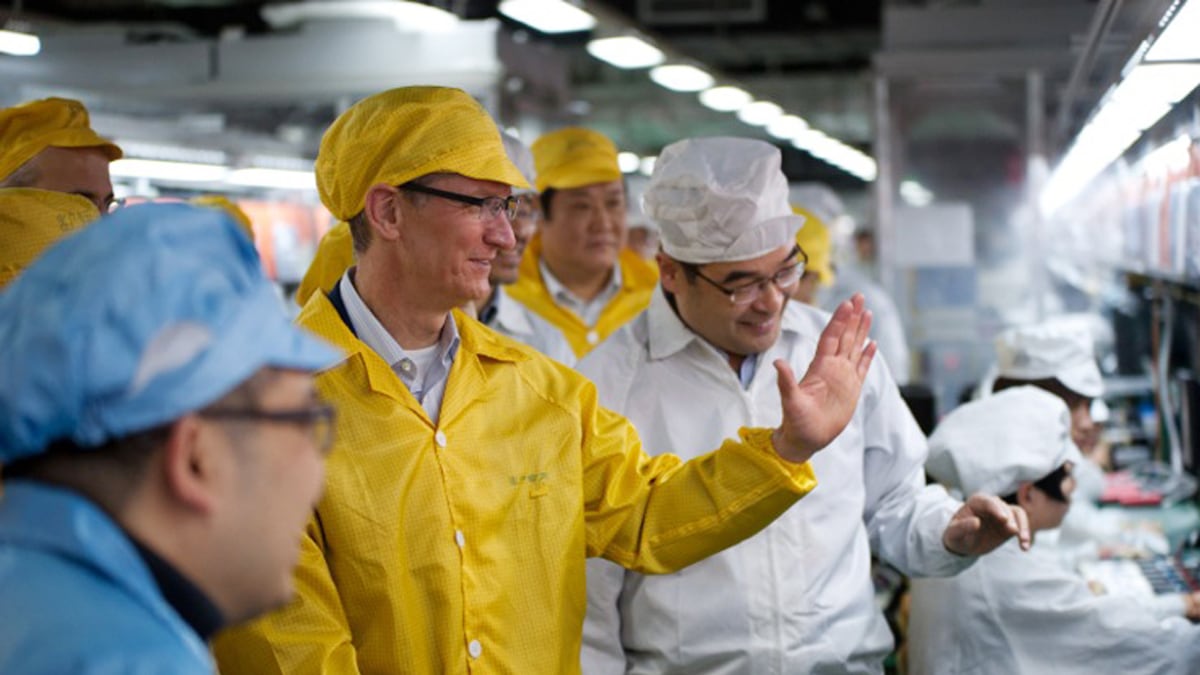An independent labor group says it found “significant issues with working conditions” at plants that make products for Apple—and, oddly enough, the group’s report may turn out to be a good thing for Apple’s reputation.
That’s because now, instead of looking like it’s trying to cover up problems, Apple is publicly acknowledging that there are problems inside Foxconn, its manufacturing partner, and vowing to fix them. Indeed, Apple asked for the study to be done. The investigation was carried out by the Fair Labor Association, a group that tries to protect the rights of workers around the world.
In a statement, Apple said, “We appreciate the work the FLA has done to assess conditions at Foxconn and we fully support their recommendations. We think empowering workers and helping them understand their rights is essential. Our team has been working for years to educate workers, improve conditions and make Apple’s supply chain a model for the industry, which is why we asked the FLA to conduct these audits. We share the FLA’s goal of improving lives and raising the bar for manufacturing companies everywhere.”
Apple has been taking a beating over the past year or two over allegations of poor conditions at the factories in China where iPads and iPhones are assembled.
First came a rash of suicides, with Foxconn workers jumping off dormitory roofs. Then came a one-man play, The Agony and Ecstasy of Steve Jobs, where monologist Mike Daisey claimed to have visited China and brought back chilling tales of underage workers and people poisoned by chemicals. (Some of his claims turned out not to be true, as NPR revealed in an expose and retraction of claims Daisey made on their show, This American Life.)
The most damaging information was contained in two investigative articles in the New York Times, which ran in January and described overstressed workers and hazardous conditions inside Foxconn plants.

In its report, the FLA says Foxconn has agreed to reduce worker hours so people work no more than 49 hours per week, including overtime, and will do this without reducing workers’ compensation. In other words, workers will get a raise, and Foxconn will have to hire thousands of additional people. This won’t happen overnight, but Foxconn has committed to reaching the goal by July 2013.
The FLA investigation found a lot of workers putting in more than 60 hours a week. Some also worked seven days in a row without getting 24 hours off. The audit also found that many workers felt unsafe at work, but the FLA says steps are being taken to improve safety and reduce accidents.
There are all sorts of things that Apple and its fans might say in the company’s defense: that Foxconn makes products for lots of American companies, not just Apple; that conditions inside Foxconn might not be as good as in an American plant, but are still a lot better than what other Chinese companies provide, as evidenced by the thousands of people who keep lining up for jobs at Foxconn.
But Apple has decided, wisely, that the best way to deal with the issue is to admit that conditions in China are not as good as they could be, and that Apple will push to make them better.
Apple is in a unique position to bring about change in China. It has one of the world’s best-known brands, and boasts the largest market value of any company in the world. It’s also phenomenally profitable and has $100 billion in the bank.
Apple appears determined to use its influence and clout to bring about real reform in China. Apple’s CEO, Tim Cook, has been in China this week, first meeting with government officials in Beijing and later touring a Foxconn facility.
The symbolism of that factory visit is significant, I think. It seems to me that Cook wants to send a message that he, personally, is committed to making things better for the people in China who make Apple’s products. That’s not only noble and right—it’s also good business. China is a huge and booming new market for Apple. Why not see to it that more people in China make enough money to buy iPads and iPhones? If that happens, everybody wins.






